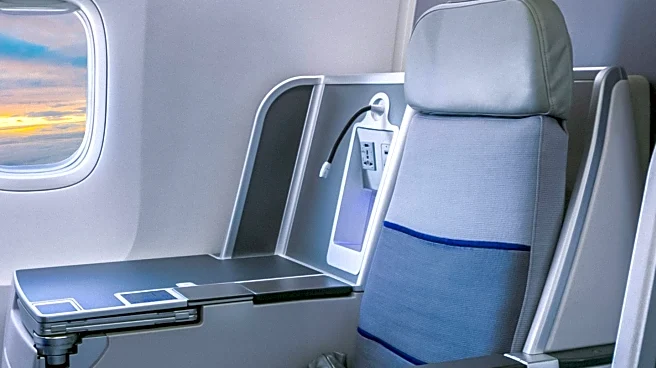What is the story about?
What's Happening?
The concept of 'check-in chicken' suggests that waiting until the last minute to check in for a flight might result in a better seat assignment. However, experts argue that this strategy is unreliable. The only guaranteed way to secure a preferred seat is to pay for it in advance. Airlines often assign seats from back to front once check-in opens, and those with airline status are more likely to receive better seats. While some travelers have had success with last-minute check-ins, the practice is risky and can result in less desirable seating. Airline operations remain secretive, and factors like check-in time, status level, and spending history influence seat assignments.
Why It's Important?
This discussion highlights the complexities of airline seat assignments and the challenges travelers face in securing preferred seating without additional costs. The reliance on ancillary revenue from seat assignments underscores the financial strategies airlines employ. For consumers, understanding these dynamics is crucial for making informed travel decisions. The broader impact includes potential changes in consumer behavior, as travelers may opt to pay for seat assignments upfront rather than risk unfavorable seating. This could influence airline revenue models and customer satisfaction levels.
What's Next?
Travelers may increasingly choose to pay for seat assignments to avoid uncertainty, potentially leading airlines to adjust their pricing strategies. As consumer awareness grows, airlines might face pressure to be more transparent about their seat assignment processes. Additionally, the travel industry could see a shift in how seat assignments are marketed, with airlines emphasizing the benefits of pre-purchased seating. This could also lead to innovations in customer service and loyalty programs as airlines seek to enhance the travel experience.















